A healthy diet is a diet that helps to maintain or improve overall health. A healthy diet provides the body with essential nutrition: fluid, macronutrients, micronutrients, and adequate calories. Eating healthy is the best choice to make for your diet: To provide the necessary nutrients that your body needs to create new cells, clean toxins, and just function every day! Eating healthy now can help prevent future diseases such as diabetes and cancer.
Dr. Kunle Iyanda, a cardiologist at Wuse General Hospital, Abuja, has described Nigerian diets as unhealthy. He said that the contents of high carbohydrates and fats in Nigerian traditional foods and diets are extremely bad for the heart and general health. He explained that Nigerian traditional foods contain high levels of cholesterol and risk of diabetes. “Our native soups are based on high levels of palm oil and groundnut oil that put us at risk for high cholesterol levels, stroke, and heart attacks.
Benefits of Eating Healthy Nigerian Food
Prevents Type 2 diabetes
Maintaining a healthy weight and eating a balanced diet that’s low in saturated fat and high in fiber found in whole grains can help to reduce your risk of developing type 2 diabetes. There has been an increase in the prevalence of diabetes in Nigeria. All regions of the country have been affected, with the highest prevalence seen in the south-south geopolitical zone. Urban dwellings, physical inactivity, advanced age, and unhealthy diet are important risk factors. Eating certain foods while limiting others can help prevent diabetes and also help people with diabetes manage their blood sugar levels.
Helps with Weight Management
Potbelly is not a sign of healthy living. Extra weight makes you more likely to have high blood pressure and high cholesterol. Both of those conditions make heart disease or stroke more likely. There is an increasing trend of overweight and obese individuals in developing countries. Being overweight or obese is known to contribute significantly to morbidity and mortality rates in various countries around the world. In Nigeria, the prevalence of overweight individuals in Nigeria is of epidemic proportions. There is a need to pay closer attention to the types of food we eat if we must not die before our time.
Promotes Heart health
A healthy diet rich in fruits, vegetables, whole grains, and low-fat dairy can help to reduce your risk of heart disease by maintaining blood pressure and cholesterol levels. A healthy heart is the beginning of a Healthy Life. Eat healthy, low fat, and heart-friendly foods; reduce the amount of salt in your diet; To promote the prevention of Heart Disease and Stroke; and empower yourself to live a healthy life. Some Nigerian foods are very detrimental to heart health.
Boost Energy and Health
The nutrients and energy you need for growth and repair, help you to stay strong and healthy and help to prevent diet-related illnesses, such as some cancers that come from the food you eat. Deficiencies in some key nutrients – such as vitamins A, B, C, and E, and zinc, iron, and selenium – can weaken parts of your immune system. A diet rich in calcium keeps your teeth and bones strong and can help to slow bone loss (osteoporosis) associated with getting older.
See: Health Benefits of Zobo Drink
Healthy Nigerian Food TimeTable
As globalization catches up with Nigerians, our high-tech, fast-paced world has made it almost impossible for Nigerian families to eat healthy meals together at home at all times. Tight work schedules force parents to eat breakfast and lunch in office cafeterias. Children often eat lunch at school or in fast food restaurants. Some even eat their dinners in their cars because they are stuck in terrible traffic jams. Another major problem that affects our feeding habits in Nigeria is that we rotate the same food a lot. Many families stick to just rice, beans, eba. Consuming an overall healthy variety of foods that include fruits, vegetables, whole grains, and lean protein sources; and eating fewer processed foods higher in sodium, fat, and calories is a well-known way to improve health, no matter how many times per day we eat. Here is a healthy Nigerian food timetable:
SUNDAY
BREAKFAST: cereals
LUNCH: fried rice and vegetable salad
DINNER: Ewa agoyi n (beans and pepper sauce)
MONDAY
BREAKFAST: coffee/tea and biscuits/bread and butter, jam or mayonnaise/omelet
LUNCH: eba and ogbono soup
DINNER: porridge beans and plantain/yam/potato
TUESDAY
BREAKFAST: noodles, vegetables, and eggs/fried plantain
LUNCH: pounded yam and oha soup
DINNER: crispy fried chicken with chips and sweet corn or boiled corn cob
WEDNESDAY
BREAKFAST: moi moi and pap/garri
LUNCH: ofada rice, egg, and tomato stew
DINNER: catfish pepper soup
THURSDAY
BREAKFAST: spaghetti and stew
LUNCH: beans and corn porridge (adalu)
DINNER: isi ewu
FRIDAY
BREAKFAST: boiled potatoes and egg or beef sauce
LUNCH: abacha and ugba sprinkled with onions and garden eggs
DINNER: jollof rice and beans
SATURDAY
BREAKFAST: pap and akara
LUNCH: Semovita and egusi
DINNER: yam and egg sauce
Eating a healthy diet is not about strict limitations, staying unrealistically thin, or depriving yourself of the foods you love. Rather, it’s about feeling great, having more energy, improving your health, and boosting your mood. Healthy eating doesn’t have to be overly complicated. If you feel overwhelmed by all the conflicting nutrition and diet advice out there, you’re not alone. This Nigerian meal timetable for a week isn’t sacred or fixed. As much as possible, be creative with your meals, using this timetable as a guide. Whatever you do, make sure your meals contain every single food group. Many Nigerians tend to eat too many carbohydrates and little or no fruits and vegetables. The detailed timetable on our list should make it easier for families who want to maintain a balanced diet.
The fundamentals of healthy eating
Protein – gives you the energy to get up and go—and keep going—while also supporting mood and cognitive function. Too much protein can be harmful to people with kidney disease, but the latest research suggests that many of us need more high-quality protein, especially as we age. That doesn’t mean you have to eat more animal products—a variety of plant-based sources of protein each day can ensure your body gets all the essential protein it needs. Nigerian protein foods such as beans, soya beans, ukwa, fresh and dry fish, eggs, and many many others can provide you with quality protein.
Carbohydrates -are one of your body’s main sources of energy. But most should come from complex, unrefined carbs (vegetables, whole grains, fruit) rather than sugars and refined carbs. Cutting back on white bread, pastries, starches, and sugar can prevent rapid spikes in blood sugar, fluctuations in mood and energy, and a build-up of fat, especially around your waistline. There are good sources of carbohydrates in Nigeria including Ofada rice, basmati rice, millet, kunu, wheat, and many others.
Fiber- Eating foods high in dietary fiber (grains, fruit, vegetables, nuts, and beans) can help you stay regular and lower your risk for heart disease, stroke, and diabetes. It can also improve your skin and even help you to lose weight. Soups like ewedu, bitter leaf, efo, as well as local fruits such as oranges, and grains will be helpful in this regard.
Fat- Much Nigerian foods is rich in fat but Not all fat is the same. While bad fats can wreck your diet and increase your risk of certain diseases, good fats protect your brain and heart. In fact, healthy fats—such as omega-3s—are vital to your physical and emotional health. Including more healthy fat in your diet can help improve your mood, boost your well-being, and even trim your waistline. Using Nigerian palm oil and soya oil instead of vegetable oil most of which are adulterated will do your heart a lot of good.
Calcium- As well as leading to osteoporosis, not getting enough calcium in your diet can also contribute to anxiety, depression, and sleep difficulties. Whatever your age or gender, it’s vital to include calcium-rich foods in your diet, limit those that deplete calcium, and get enough magnesium and vitamins D and K to help calcium do its job. Fura da nono is a very healthy Nigerian Food rich in calcium. Adding milk to your cereals and tea at breakfast will help you meet your recommended daily calcium requirement for calcium. See: The Top 4 Healthiest Nigerian Food

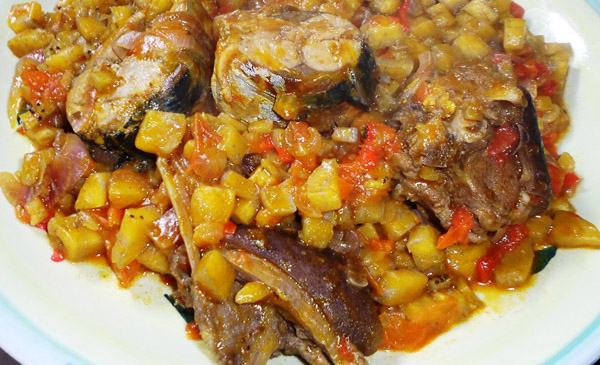
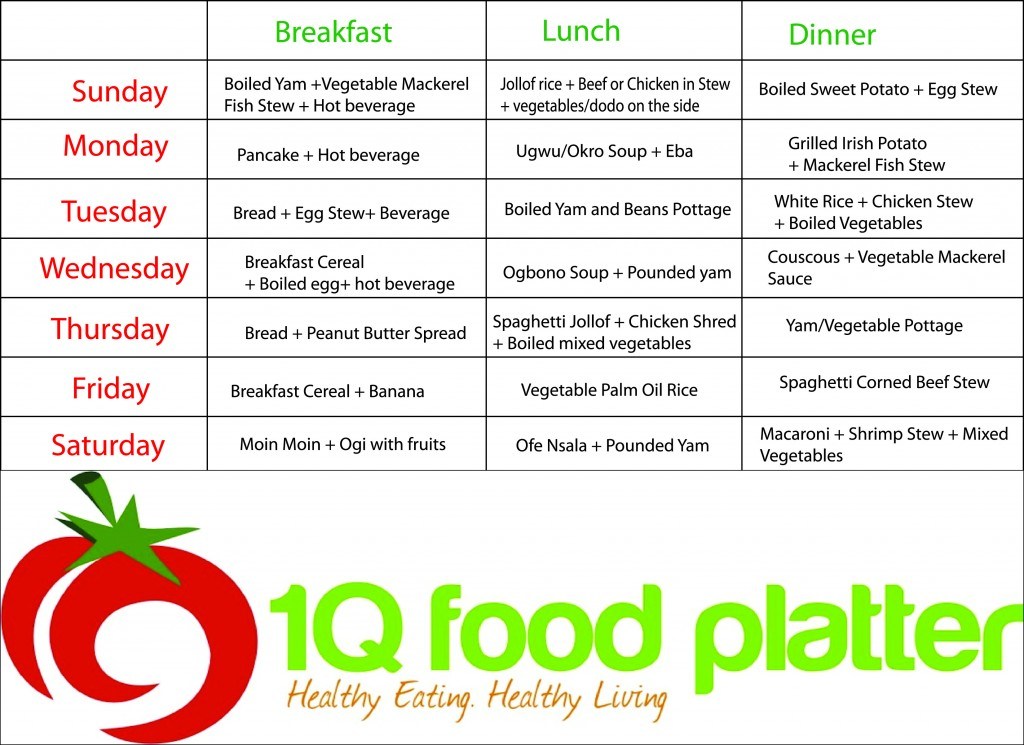
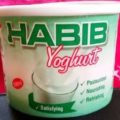
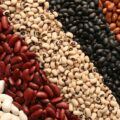
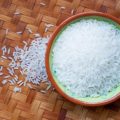

1 Comment